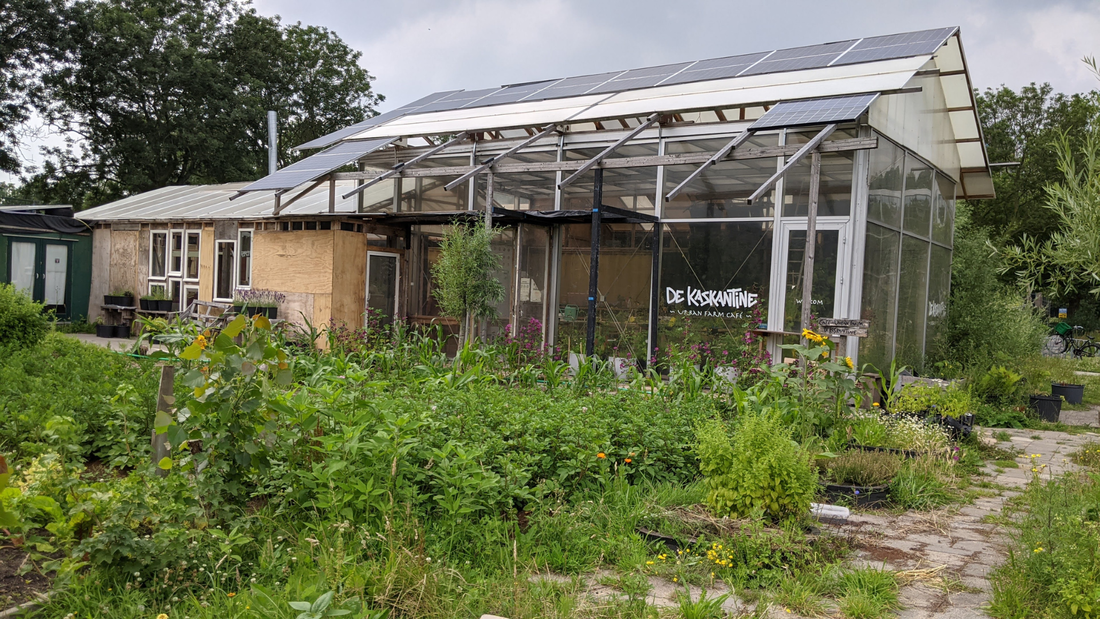|
How often talking about a problem nowadays ends with a sigh, “yup, it’s systemic…” after which we give up thinking further about solutions. Fighting the system is the domain of radicals, rebels, artists and philosophers and not for practical, down-to-earth people, right?
But now we are in one of those rare historical moments in which radical transitions in society are made as we speak. And there is a real risk of system collapse. The availability of global resources calculated by the club of Rome has recently been updated and is as sobering as they were back in the 70s (Earth4All). System change is not a utopic exercise. It is more like what can we do to prevent collapse in a dramatic and chaotic way. And: how can we start building up systems that align with the future realities? A new system doesn’t just appear out of nothing. It is created from subsystems and niche markets that were already active under the old system. So, the question “how can we change the system?” should be in fact: how can we give importance to present values that will be dominant in the future? What is within our reach now, as an individual and as a community, to build up those promising subsystems and niche markets? https://www.vpro.nl/programmas/tegenlicht/lees/artikelen/2022/tien-transities.html There is a growing movement of change makers. The Kaskantine offers different challenges, loosely based on the “three challenges concept” of Gina Bianchini, the CEO of Mighty Networks, that will make you part of those subsystems and help to shape them at different levels. Lifestyle as a system: reduce the personal ecological footprint and align daily habits with new values (”the intro-challenge”). This is a checklist of actions to choose and decide which point you will change. Extended Household as a system: reduce the footprint of the whole household, realising results (” result challenge”). This has the form of strategy that can be designed and followed by the members of the (extended) family, friends and community members that can have measurable objectives for example for one year. The Neighbourhood or regional environment as a system: define neighbourhood values or the neighbourhood doughnut and projects that work towards them (”epic challenge”). This has the form of a social network or cooperation of citizens, grassroots organisations, social entrepreneurs and local businesses, schools and health care institutes and local authorities that stimulate specific actions that fit in the neighbourhood strategy with projects or programmes. To support subsystems and niche markets, we have to look for leverage points that can bring them in a more dominant position, things that structurally put the new initiatives in more favourable property and power relations. The Personal -Intro- Challenge: 1. calculate your footprint and make your personal doughnut; https://doughnuteconomics.org/tools/118 2. do the VENN diagram; https://www.ayanaelizabeth.com/climatevenn 3. change one daily habit into one that fits with the new values, like a more healthy and climate-friendly diet. https://eatforum.org/learn-and-discover/the-planetary-health-diet/. The Extended Household -Result- Challenge: 4. join or set up a buy-nothing group or/and local barter system; https://buynothingproject.org/ 5. join or set up a repair cafe, composting site, community garden and/or neighbourhood kitchen; 6. join or set up a transport bike or car share group; 7. join or set up your own insurance, energy or saving and credit group. The -Epic- Neighbourhood Challenge: 8. identify local capital and natural resources, and push for a good commoning policy; 9. embrace nature-based design, and let local production depend on what natural cycles have to offer; 10. integrate sectoral policies and look for solutions that solve multiple problems at the same time. https://www.wri.org/insights/systems-change-how-to-top-6-questions-answered Join those challenges with us, and sign up for the newsletter!
1 Comment
|
AuthorMenno Houtstra, founder of the Kaskantine Archives
July 2024
Categories |
How to find Us |
Contact UsContact email: info [at] kaskantine.nl
Read our Privacy policy
|
Kaskantine 2024
 RSS Feed
RSS Feed
